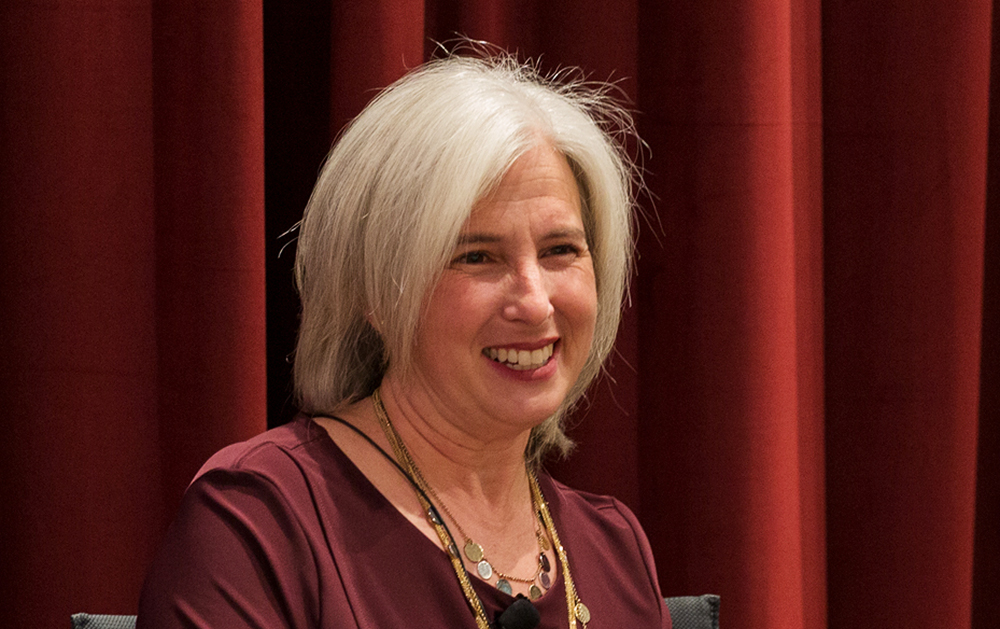
Photo by Ian Byers-Gamber.
Eryn Brown is the editorial director of Zócalo Public Square. The moderator of the Zócalo/ALOUD program “How Does L.A. Inspire First-Time Novelists?,” she sat down in our green room to chat about Jewish writers in the South, meeting her husband in book club, and what she’d do if she wasn’t in journalism.
Growing up in Atlanta, what books did you gravitate toward?
Books about Jewish life always resonated with me. There didn’t used to be a whole lot written about Jewish people in the South like me. Jewish life was in New York. And so, I think I was pondering what that all meant. Then there was a flurry of writing about Jewish people in the South when I was still in high school—the playwright Alfred Uhry and Eli Evans, a scholar who wrote about Jews in the South. I would have read a lot of that.
If you weren’t a journalist, what would you be?
I suspect I would have ended up being a lawyer. I was studying for the LSAT when my job at Fortune took off. But if I could step back in a more global way, I always liked science and never studied enough of it. And I wonder if that was a different path that I could have taken.
What’s one story that you reported that’s stuck with you over the years?
I wrote about a woman who had brain cancer. She was this really interesting, lovely person who drew a lot of strength from writing poetry. I just went and spent a day with her. It was a sweet story about a person who just had a really strong spirit. She had suffered personally in a lot of ways, but her answer to it was to write this poetry and to reach out to people. She touched a lot of lives.
What was the last book you checked out from the public library?
Gary Shteyngart’s Super Sad True Love Story from the Sherman Oaks branch of the Los Angeles Public Library. What’s great about that branch is that it’s very easy to just park and walk in. The tables near the children’s section were my little spot before COVID. I would sit there and read and write.
We know you have a special relationship to book clubs. Can you tell us why?
There was a book club in New York that a group of college friends put together. It was co-ed. And people used to invite friends to set up with their friends who were already in the book club. And so, I was invited to that one when I lived in New York, and I met my husband there.
This is an event about how place shapes us as writers and people. How do you think your childhood shaped you as a person?
Atlanta is a place where I have a very strong sense of home and history, but also a place where, in some ways, I didn’t always feel like I fit in. It taught me why I needed to go to New York and L.A. But then it’s also the place I go back to—I’m going back next week—and it’s a place that I think about a lot when I think about the world, and where we are today.
What’s your unpopular opinion of the moment?
I’m kind of over it with the Star Wars spin offs! I liked The Mandalorian a lot. But I have two teenage sons and a comic book-loving husband and any Star Wars spin off or Marvel spin off that materializes is immediately consumed. I appreciate it but I kind of wish they’d stop. But it’s totally about the context—I don’t have anything against it on its own merits.



